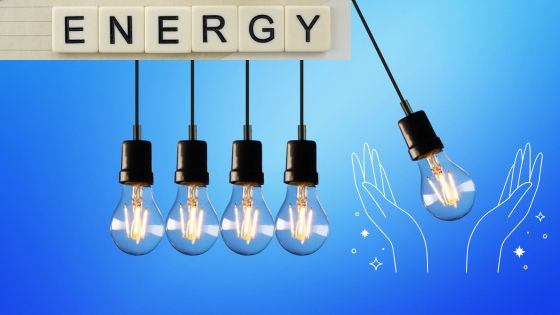
Energy Saving Tips-Guide to Save Money on Utilities energy bill
Posted on |

Introduction
In today’s world, where expenses are on the rise, finding ways to save money on utilities is essential. This blog post aims to provide you with practical energy-saving tips that can help lower your utility bills. By implementing energy-saving tips and changing our daily habits, we can significantly reduce our utility bills while contributing to a greener environment. This article will explore various strategies, techniques, and practical suggestions to help you save money on utilities. So, let’s dive in and discover the secrets to reducing your energy costs!
The Importance of Energy Conservation
Energy conservation plays a vital role in our lives and has numerous benefits. By adopting energy-saving practices, we reduce our utility bills and contribute to our planet’s sustainability. Here are some compelling reasons why energy saving is crucial:
- Environmental Impact: Conserving energy helps minimize our carbon footprint and reduces the strain on natural resources. It contributes to mitigating climate change, protecting ecosystems, and preserving biodiversity.
- Cost Savings: Implementing energy saving measures can lead to substantial cost savings over time. You can free up funds for other vital expenses or savings by reducing utility bills.
- Energy Security: By conserving energy, we reduce our dependence on external energy sources, making our communities more resilient and secure.
- Increased Comfort: Energy-efficient practices often enhance the comfort and quality of our living spaces. Improved insulation, efficient appliances, and smart home technologies can create a more comfortable environment while reducing energy consumption.
Now that we understand the significance of energy conservation, let’s explore some practical tips to save money on utilities.
Conduct an Energy Audit
Performing an energy audit is an excellent starting point for identifying areas where you can make improvements. Conduct a DIY audit or hire a professional to evaluate your home’s energy efficiency. An audit typically involves inspecting insulation, checking for air leaks, evaluating appliance efficiency, and examining lighting fixtures. Based on the results, you can prioritize the necessary upgrades for energy saving.
Insulation: The Key to Efficiency
Proper insulation is essential for maintaining a comfortable indoor temperature and reducing energy waste. Inadequate or lack-off adequate insulation can result in significant heat loss during the winter or excessive heat gain during the summer. Consider the following insulation tips for energy saving:
- Attic Insulation: Properly insulating your attic can prevent heat from escaping, reducing the need for excessive heating. It also helps keep your home cooler during hot summers.
- Weatherstripping: Apply weatherstripping to doors and windows to prevent drafts and minimize energy loss.
- Seal Air Leaks: Identify and seal any air leaks in doors, windows, and electrical outlets to enhance energy efficiency.
Turn off Unnecessary Lights and Electronics
One of the simplest ways to save money on utilities is by turning off lights and electronics when they are not in use. This small change can significantly reduce energy consumption and lower monthly bills.
Optimize efficient Heating and Cooling Systems
Both heaters and air conditioners contribute significantly to the energy consumption. Optimizing their efficiency can result in substantial cost savings. Consider the following to efficient energy saving tips:
- Programmable Thermostat: Regulate your home’s temperature based on your schedule to ensure that you are not wasting energy while sleeping or when you’re away by installing a programmable thermostat.
- Regular Maintenance: Schedule regular maintenance for your heating and cooling systems to ensure they operate efficiently and regularly clean or replace filters as the manufacturer recommends.
- Air Conditioning: Set your air conditioner’s temperature slightly higher in the summer to reduce energy usage. Use ceiling fans to enhance airflow and create a comfortable environment.
Use Energy-Efficient Appliances
Investing in energy-efficient appliances can make a substantial difference in your utility bills. Always check for devices with the Energy Star label, designed to consume less energy without compromising functionality when purchasing. Modern appliances offer a range of energy-efficient options that can help you save money in the long run. When buying new appliances, consider the following:
- Energy Star Certification: Look for appliances with the Energy Star label. These products meet strict energy efficiency criteria and can help reduce your energy consumption.
- Refrigerator Optimization: Set your refrigerator temperature between 35-38°F (1-3°C) and your freezer temperature between 0-5°F (-18 to -15°C). Clean the coils regularly to improve efficiency.
- Washing machine – Wash Laundry in Cold Water:
There are a lot of Energy Star-certified washing machines available in the market. However, the easiest way to reduce electricity use, regardless of the kind of washing machine you have. Using cold water instead of hot when doing laundry can help you save money on utilities as most of the energy used by washing machines goes into heating the water. Using cold water, you can reduce energy consumption and still achieve clean clothes.
- Install Low-Flow Showerheads and Faucets
Reducing water consumption helps the environment and lowers your water bill. Install low-flow showerheads and faucets to limit water flow without compromising your shower experience or daily water usage.
Efficient Lighting Solutions
- Unplug Electronics on Standby Mode:
Even when electronic devices are on standby mode, they draw power. To save money, unplug electronics like TVs, chargers, and gaming consoles when they are not in use.
- Choose LED Light Bulbs:
Replacing traditional incandescent bulbs with energy-efficient LED bulbs can significantly reduce electricity consumption as they last longer and consume less energy while providing the same brightness level.
FAQs (Frequently Asked Questions)
Q: How much money can I save by implementing energy saving tips?
By implementing these energy-saving tips, you can save anywhere from 10% to 30% on your utility bills. The actual amount depends on various factors, including your current energy consumption, the size of your home, and the extent of the energy saving measures you adopt.
Q: Are energy-efficient appliances worth the investment?
Absolutely! Energy-efficient appliances may have a higher upfront cost but consume significantly less energy during their lifespan. Over time, the cost savings on your utility bills will likely outweigh the initial investment.
Q: How long does it take to recoup the cost of installing solar panels?
The payback period for solar panel installations can vary depending on location, available sunlight, and local incentives. It takes, on average around 5 to 7 years to recoup the initial investment through energy savings.
Q: Can I save energy by using power strips?
Yes, using power strips can help reduce standby power consumption. Many electronic devices continue to consume energy even when they’re turned off or in standby mode. You can eliminate this wasteful energy consumption by connecting multiple devices to a power strip and switching them off when not used.
Q: What are some no-cost energy-saving tips?
There are several no-cost energy saving tips you can implement right away, including:
- Turning off lights and appliances when not in use.
- Unplug chargers and electronics when fully charged or not in use.
- Maximizing natural lighting by opening curtains and blinds.
- Adjust your thermostat to a moderate temperature.
- Using ceiling fans to improve air circulation.
Q: How can I educate my family about energy conservation?
Educating your family about energy conservation is essential for fostering sustainable habits. You can organize family meetings to discuss the importance of saving energy and involve everyone in implementing energy saving measures. Make it fun by turning it into a challenge or a game, and reward family members for their efforts.
Conclusion
Saving money on utilities doesn’t have to be complicated. By adopting these energy saving tips, you can reduce your environmental impact while keeping your finances in check. Remember to be mindful of your energy usage, make small changes in your daily routine, and invest in energy-efficient appliances. Together, we can make a positive difference and create a more sustainable future.
For more information on how to reduce your energy bill. Please check out article published by “Australian Government – Department of Climate Change, Energy and Environment Water” : guide to reduce your energy bills.


